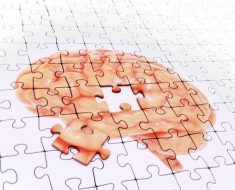Mariah Carey’s Magical Christmas Special: Apple TV+ trailer
We use your sign-up to provide content in ways you’ve consented to and to improve our understanding of you. This may include adverts from us and 3rd parties based on our understanding. You can unsubscribe at any time. More info
The US born star shot to fame in the 1990s with her self-titled debut album, topping the Billboard charts for 11 consecutive weeks. Since then the star has gone on to release multiple successful albums, and was named Artist of the 1990s Decade by Billboard at the turn of the century. Back in 2018, the star spoke about her battle with bipolar disorder – a mental health condition that affects your moods and can swing from one extreme to the other. After first being diagnosed in 2001, the star said that she “didn’t want to believe it,” and what followed were the “hardest couple of years” she has been through.
Speaking to People in 2018, Carey said: “Until recently I lived in denial and isolation and in constant fear someone would expose me.
“It was too heavy a burden to carry and I simply couldn’t do that anymore.
“I sought and received treatment, I put positive people around me and I got back to doing what I love — writing songs and making music.”
The star went on to detail how she was first diagnosed after suffering from a mental breakdown and being hospitalised.

“For a long time I thought I had a severe sleep disorder. But it wasn’t normal insomnia and I wasn’t lying awake counting sheep,” she explained
“I was working and working and working. I was irritable and in constant fear of letting people down.
“It turns out that I was experiencing a form of mania — eventually I would just hit a wall.
“I guess my depressive episodes were characterised by having very low energy.
“I would feel so lonely and sad — even guilty that I wasn’t doing what I needed to be doing for my career.
“I was so terrified of losing everything.”
The NHS explains that people with bipolar disorder have episodes of both depression and mania, with symptoms of bipolar depending on which mood the individual is experiencing.
Unlike simple mood swings, each extreme episode of bipolar disorder can last for several weeks (or even longer).
View this post on Instagram
A post shared by Mariah Carey (@mariahcarey)
During an episode of depression, individuals may have overwhelming feelings of worthlessness, which can potentially lead to thoughts of suicide.
However, during mania people can experience the following:
- Feeling very happy
- Having lots of energy, ambitious plans and ideas
- Spending large amounts of money on things you cannot afford and would not normally want.
Some may also experience symptoms of psychosis, where you see or hear things that are not there or become convinced of things that are not true.
“I’m hopeful we can get to a place where the stigma is lifted from people going through anything alone,” Carey continued, before going on to explain how medication and therapy has helped her.

“It can be incredibly isolating. It does not have to define you and I refuse to allow it to define me or control me.
“I’m just in a really good place right now, where I’m comfortable discussing my struggles with bipolar II disorder.”
For those who have their everyday lives affected by the disorder, treatments aim to control the effects of an episode.
The following treatments are currently used to treat bipolar:
- Medicine to prevent episodes of mania and depression – these are known as mood stabilisers, and you take them every day on a long-term basis
- Medicine to treat the main symptoms of depression and mania when they happen
- Learning to recognise the triggers and signs of an episode of depression or mania
- Psychological treatment – such as talking therapy, which can help you deal with depression, and provides advice about how to improve your relationships
- Lifestyle advice – such as doing regular exercise, planning activities you enjoy that give you a sense of achievement, as well as advice on improving your diet and getting more sleep.
For confidential support call the Samaritans in the UK on 116 123 or visit a local Samaritans branch.
Source: Read Full Article





